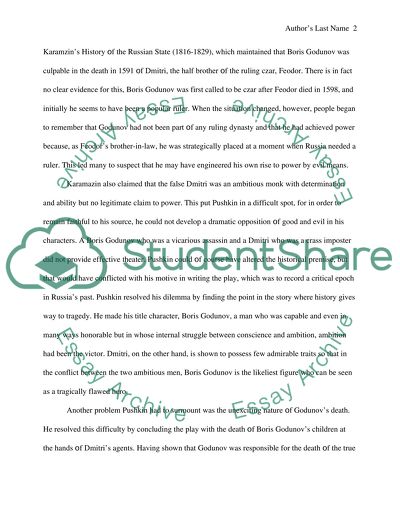Cite this document
(“Boris Godunov by Alexander Pushkin Book Report/Review”, n.d.)
Boris Godunov by Alexander Pushkin Book Report/Review. Retrieved from https://studentshare.org/miscellaneous/1516537-boris-godunov-by-alexander-pushkin
Boris Godunov by Alexander Pushkin Book Report/Review. Retrieved from https://studentshare.org/miscellaneous/1516537-boris-godunov-by-alexander-pushkin
(Boris Godunov by Alexander Pushkin Book Report/Review)
Boris Godunov by Alexander Pushkin Book Report/Review. https://studentshare.org/miscellaneous/1516537-boris-godunov-by-alexander-pushkin.
Boris Godunov by Alexander Pushkin Book Report/Review. https://studentshare.org/miscellaneous/1516537-boris-godunov-by-alexander-pushkin.
“Boris Godunov by Alexander Pushkin Book Report/Review”, n.d. https://studentshare.org/miscellaneous/1516537-boris-godunov-by-alexander-pushkin.


